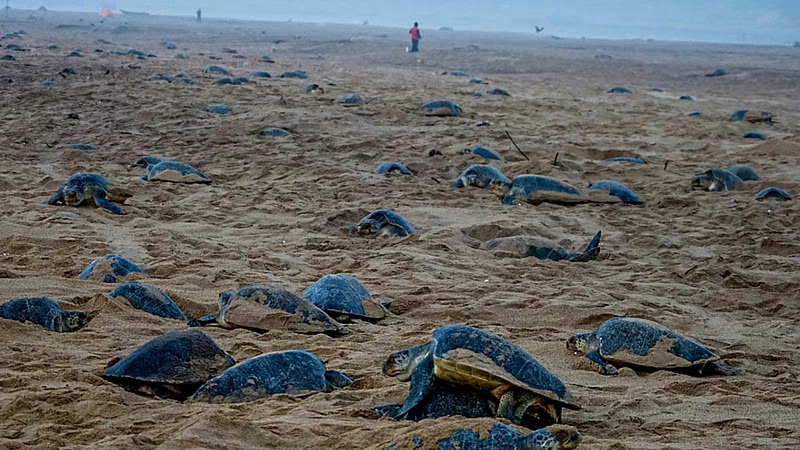 Image Source: Deccan Herald
Image Source: Deccan Herald
Karnataka is undertaking a path-breaking exercise to geo-tag Olive Ridley turtles arriving on its shores, taking marine conservation and scientific research to a new high. The initiative is intended to map these threatened sea turtles' migratory routes, nesting habits, and habitat choices, fetching critical information for their conservation.
Key Highlights:
Geo-Tagging Begins: The Karnataka government will tag Olive Ridley turtles visiting the state with satellite-tagged geo-tags, enabling real-time tracking of their movements along the 320-km state coastline. This information will be utilized to research migration, nesting, and habitat utilization, enabling authorities to customize conservation measures for optimal effect.
Hotspots of Conservation Identified: The Forest Department has increased the number of nesting hotspots identified from four to eight, covering areas such as Sasihithlu, Idya, Surathkal, Tannirbhavi, Bengre, Someshwara, and Uchila. Onshore camps and artificial hatcheries are established to protect nests and translocate eggs under danger due to natural hazards or poaching.
Community and Scientific Partnership: Collaboration with the Wildlife Institute of India and local communities is involved in the project. Protective enclosures, monitoring of nests on a regular basis, and strict protocols are followed to ensure the safe hatching and release of hatchlings of turtles.
Long-Term Effect: Through monitoring of migration and nesting, Karnataka hopes to mitigate threats like habitat loss, poaching, and climate change. The information will guide future policy and make the state a vanguard for marine biodiversity conservation.
The ambitious endeavor not only has the potential to advance scientific knowledge of Olive Ridley turtles but also ensures their existence in the future.
Source: The New Indian Express, Times of India, The Hans India
Advertisement
Advertisement




